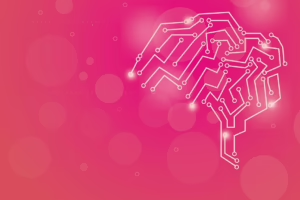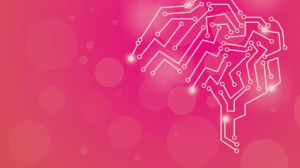Artificial Intelligence Unveiled: What It Truly Means for Our Future
Introduction
Artificial Intelligence (AI) has transitioned from the realm of science fiction into a cornerstone of modern technological advancements. Once imagined only in books and movies, AI is now integrated into everyday life, influencing everything from healthcare to finance, transportation, and entertainment. But what does this really mean for our future? In this article, we will explore the intricacies of AI, its implications, potential benefits, and the challenges we may face as we navigate this uncharted territory.
Understanding Artificial Intelligence
Definition and Types of AI
AI can be broadly defined as the capability of a machine to imitate intelligent human behavior. This encompasses a range of technologies, including:
- Narrow AI: Specialized systems designed for specific tasks, such as image recognition or natural language processing.
- General AI: Hypothetical AI that possesses the ability to understand, learn, and apply intelligence across a broad range of tasks, similar to human beings.
The most common applications of AI today utilize Narrow AI, as it excels at automating routine processes and analyzing large data sets more efficiently than humans.
How AI Works
At its core, AI functions through machine learning (ML) and deep learning algorithms. ML enables the system to learn from data, adapting its responses based on outcomes without explicit programming. Deep learning, a subset of ML, mimics the human brain’s neural networks and is particularly useful for analyzing unstructured data like images and text.
The Current Landscape of AI
Industry Adoption and Applications
Numerous sectors are currently reaping the benefits of AI technologies.
-
Healthcare: AI algorithms analyze medical data to assist in diagnosing diseases, personalizing treatment plans, and even predicting patient outcomes. For instance, IBM Watson for Oncology provides physicians with evidence-based treatment options for cancer care.
-
Finance: AI is used for fraud detection, risk assessment, and algorithmic trading. Automated trading systems can react to market conditions faster than human traders, often leading to increased efficiencies.
-
Transportation: Autonomous vehicles use AI to navigate and ensure safety on the roads. Companies like Tesla and Waymo are at the forefront of this revolution.
-
Customer Service: Chatbots powered by AI handle customer inquiries, providing instant support that reduces wait times and operational costs for businesses.
The Role of Big Data
The integration of AI with big data fuels its capabilities. Massive volumes of structured and unstructured data are collected, stored, and analyzed, allowing AI systems to recognize patterns and improve performance over time.
The Benefits of AI
Increased Efficiency and Productivity
AI technologies can perform tasks faster and more accurately than humans, leading to significant productivity gains. For instance, in manufacturing, AI-powered robots can assembly products at speeds unattainable by human workers.
Enhanced Decision-Making
AI data analytics can offer insights that were previously inaccessible, enabling informed decision-making. Businesses can analyze customer behaviors, predict market trends, and optimize operations, allowing for a competitive edge.
Improved Quality of Life
In sectors like healthcare, AI can lead to earlier diagnoses and improved patient outcomes, enhancing the overall quality of life. Wearable devices powered by AI can monitor health metrics in real-time, alerting users to potential health issues before they become serious.
Challenges and Ethical Considerations
Job Displacement
While AI brings numerous advantages, one of its most significant concerns is the potential for job displacement. Automation has the capacity to replace many routine jobs, leading to unemployment and economic inequality. Preparing the workforce for this shift through reskilling and education is crucial.
Data Privacy and Security
With large amounts of data being collected and analyzed, data privacy becomes a critical issue. Companies must ensure they comply with data protection regulations to safeguard personal information.
Ethical AI
The development of AI raises ethical questions, including biases coded into algorithms and accountability for AI decisions. Ensuring that AI systems are trained on diverse data sets and monitored for ethical compliance is essential to prevent unwanted discrimination.
Autonomous Systems
The rise of autonomous technologies, such as self-driving cars, presents complex ethical dilemmas. Questions surrounding liability and ethical decision-making in life-and-death situations must be addressed.
The Role of Policy and Regulation
Governance Frameworks
The rapid growth of AI necessitates comprehensive governance frameworks. Policymakers must establish regulations that facilitate innovation while protecting users’ rights and promoting ethical AI use.
International Collaboration
Addressing the global implications of AI requires international cooperation. Ensuring that AI technologies are developed and used responsibly must be a joint effort among nations.
The Future of AI
Advancements on the Horizon
Looking ahead, we can expect continual advancements in AI capabilities. Areas such as quantum computing, natural language processing, and emotional intelligence AI will likely enhance the utility of AI systems.
Human-AI Collaboration
The future will likely see more collaboration between humans and AI. Rather than complete automation, AI will augment human decision-making, acting as an assistant to enhance productivity rather than replace human workers.
AI in Creative Fields
AI is also beginning to make strides in creative domains, producing music, art, and literature. While this raises questions about originality and creativity, it could lead to new forms of artistic expression and collaboration between human and machine.
Conclusion
Artificial Intelligence is poised to reshape our future in ways we can hardly imagine. As we stand on the brink of this new era, it is crucial that we approach AI with caution—embracing its potential while addressing its challenges. The journey ahead will require thoughtful governance, ethical considerations, and continuous dialogue among stakeholders—including technologists, policymakers, ethicists, and the public.
As we venture into this uncharted territory, we have the opportunity to redefine not only how we work and interact but also what it truly means to be human in an increasingly automated world.
References
- [1] Russell, S., & Norvig, P. (2020). Artificial Intelligence: A Modern Approach. Pearson.
- [2] Chui, M., Manyika, J., & Miremadi, M. (2020). How AI Is Reshaping Industry and the Future of Work. McKinsey.
- [3] Binns, R. (2018). Fairness in Machine Learning: Lessons from Political Philosophy. Proceedings of the 2018 Conference on Fairness, Accountability, and Transparency.
- [4] Brynjolfsson, E., & McAfee, A. (2014). The Second Machine Age: Work, Progress, and Prosperity in a Time of Brilliant Technologies. W.W. Norton & Company.
- [5] Cummings, M. L. (2017). Artificial Intelligence and the Future of Work. U.S. Department of Defense.
This article provides a foundational understanding of AI and its implications for the future while addressing the challenges it brings. For a comprehensive exploration, further research and continued discussion in the community are essential.


























Add Comment